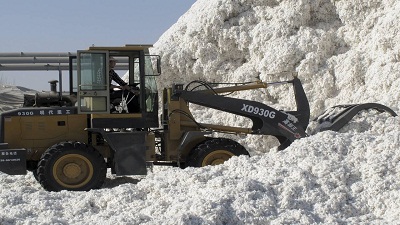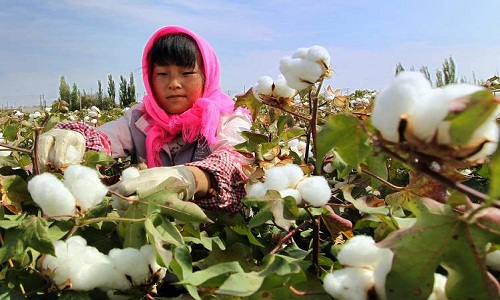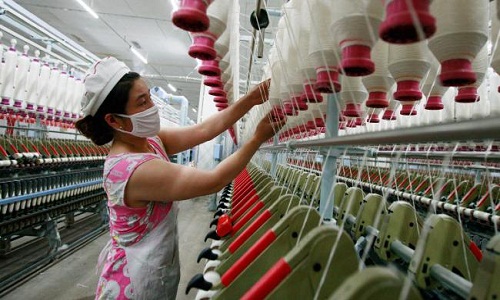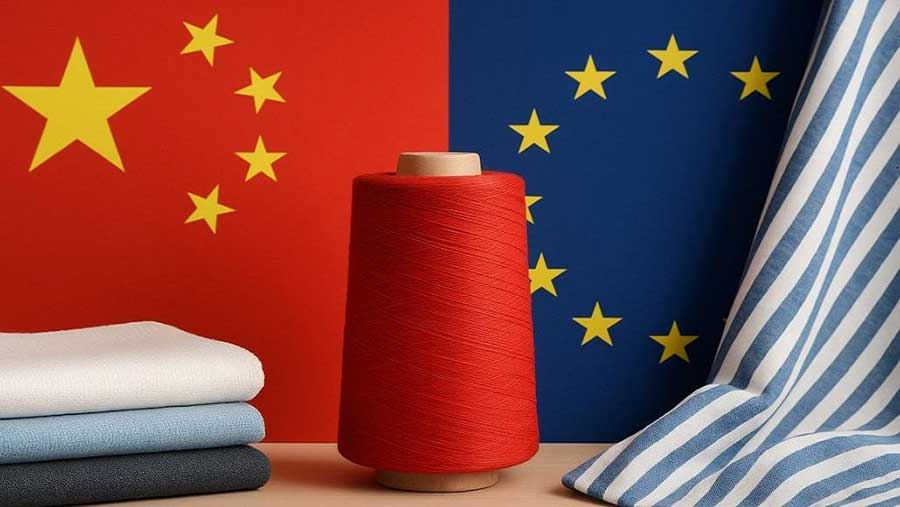
With global cotton prices have plunged in recent weeks, the speculation mounts that China is getting ready to sell some of its 11 million-metric-ton stockpile - enough to make 10 billion pairs of jeans.
According to commodity analysts, China is expected to conduct a cotton auction in the next few months, its first since the end of August. While the government sells nearly all of its cotton at home, it is such a big player in the market that unloading a chunk would depress global prices by reducing how much foreign cotton Chinese businesses buy. China holds about 60 per cent of the world’s cotton stockpiles and is responsible for slightly less than a third of global consumption.
Import restrictions

In addition to this, the Chinese government has tightened import quotas for cotton, leading to less global access to that market and a 41 per cent drop in imports in January from a year earlier.
The expectation of a new round of selling by China has pushed down prices on the Zhengzhou Commodity Exchange to their lowest levels since 2004. Meanwhile, the benchmark ICE Futures U.S. exchange has cotton trading near its lowest since 2009, dropping about 12 per cent since the beginning of the year; the May contract settled at 56.41 cents a pound recently.
According to Paul Deane, agricultural commodity analyst at Australia & New Zealand Banking Group, until those Chinese stocks are cleared, it is going to be hard for cotton to break away from current levels, which is bearish on cotton.
Aggressive measures
Meanwhile, the China National Cotton Exchange said it hadn’t been notified of further auctions from the National Development and Reform Commission. The commission was unavailable for comment. However, the U.S. Agriculture Department said there are numerous unofficial indications that the Chinese government intends to pursue a more aggressive reserve stocks-sale programme in the spring and summer of 2016.
During the last year’s July-to-August auction, the National Development and Reform Commission had wanted to sell one million tons of cotton, but fell far short; selling only 63,413 tons, because the price being asked was higher that what most were willing to pay. Global prices have dropped 9.5 per cent since then.
However, much it sells at its next auction, China will lose money. According to the USDA, it bought cotton for the equivalent of $2,950 to $3,200 a ton during a period when the median monthly global price was $2,000 a ton. China sold some of these stocks for an average equivalent price of $2,175 a ton in last year’s auction - a loss of at least 26 per cent on its original investment.
Selling at a lower price

According to a Commonwealth Bank of Australia statement, China will need to set prices lower to sell its stockpiled cotton, bringing it more in line with depressed global prices. If it does sell at lower prices, the USDA predicts China may be able to cut its reserves 13 per cent by July 31 of next year.
One factor putting pressure on China to sell is that cotton deteriorates, so it can’t simply hold supplies for years in hopes the price will rise. The stockpile dates back to a government program introduced in March 2011 to improve the livelihoods of domestic cotton farmers by setting a floor for prices. But with global cotton prices dropping, China chose to store the cotton rather than sell it on the global market.
According to the USDA, the result was a doubling of the world’s stockpiles, which further depressed prices. USDA estimates of cotton stockpiles are slightly above China’s. Said Nick Hungate, global head of cotton at RCMA Commodities Asia Pte, that some of it has certainly deteriorated over time. He said markets have speculated that much of the higher-quality cotton has already been sold and what is left is the lower-grade cotton. China has since ended the price-support program for cotton.












